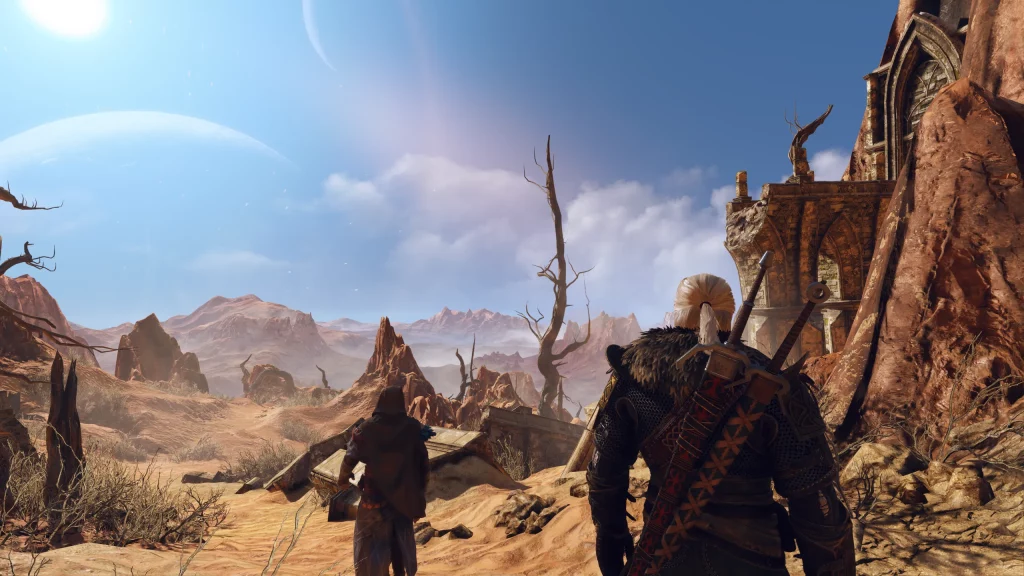
I just finished playing The Witcher 3: Wild Hunt for the first time, and all I can say is: wow. I’ve been gaming a lot in the past year, but I’d never played this massively popular title before. Needless to say, all of the praise it receives is deserved.
It’s been ten years since the game’s original release, but the third entry in CD Projekt RED’s Witcher series hasn’t lost its spot in the limelight; it probably isn’t hard to understand why for anyone who’s played it. The Witcher 3 is often cited as a paragon of RPGs for its memorable characters, exhilarating gameplay, and expansive open world. In 2022, a free “next-gen” update was released, implementing a host of graphical improvements and quality of life changes that breathe new life into the already stunning experience.
There’s so much to love about The Witcher 3, but the main plot is what kept me engaged throughout. Full disclaimer: I still haven’t played the first two games. I was worried – especially in the first act of the game – that I wouldn’t be able to follow the story. While I think I’d probably have a greater appreciation for the characters and conflicts (especially surrounding the tension between Nilfgaard and Temeria), the game handles the onboarding of new players adeptly. A lot of context and history is baked into the world without feeling like a lecture or crash course on the previous titles. This made it really easy to step into Geralt of Rivia’s character. Every quest felt purposeful in pushing the story to a resolution, and I was so drawn in by the game’s narrative that I found myself often opting to forego side quests in favour of continuing the main quest line. This probably caused me to miss out on some pretty cool stuff, but I was hooked.
In addition to the writing, the music really made this game pop. The soundtrack has never been something that I’d normally attribute a game’s most important quality to, at least not over more explicit aspects like combat or crafting. I think in this case, The Witcher’s untamed, barbaric tone puts a greater emphasis on its backing tracks.
The music that plays during many of the monster fights, titled “Silver For Monsters…” uses loose guitar strings and forlorn chants to strengthen The Witcher’s intense combat. It’s an audible extension of the supernatural elements of the game, and one that builds on the thrill of fighting monstrosities. This is probably the strongest example of how the music elevates this game’s experiences.
A special shoutout to the music associated with Skellige, too. Those songs are ripe with Nordic influence and possess a similar spirit to Skyrim’s original soundtrack.
Having finished both expansion packs (Blood and Wine was especially good), my time with The Witcher 3 is drawing to a close, for now. More than any other game in recent memory, The Witcher 3 taught me the importance of theme and emotion. Whether those two things are emphasized in writing or song, they played a really big part in my enjoyment of the game. In other words, don’t forget to think about the “big picture” that the game’s content is trying to convey, rather than the content itself. Thanks for helping me see RPGs in a new light, Geralt.